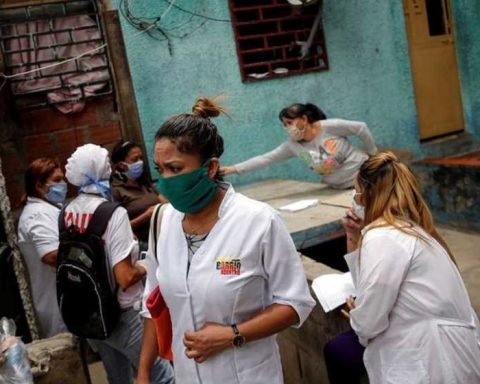The International Monetary Fund (IMF) lowered the growth forecasts of 143 countries due to the effects of the Russian invasion of Ukraine, which represents an impact on 86% of the world’s gross domestic product (GDP), according to the director of the Fund, Kristalina Georgieva.
In a speech prior to the start of the annual spring assembly that the body will hold together with the World Bank next week, Georgieva warned that the future of the economy is “extraordinarily uncertain” due to the war, sanctions and covid-19.
Despite the fall in forecasts, the managing director of the international financial entity assured that most countries will continue to be in positive territory.
The IMF will publish next Tuesday, within the framework of its assembly, the updated and detailed economic projections by region and country for 2022, 2023 and 2024.
“We are experiencing one crisis on top of another,” Georgieva said, referring to the outbreak of war when the world had not yet emerged from the covid-19 pandemic.
In addition to these two factors, the economist also cited the “danger” of extremely high inflation – very high in developed countries, but even higher in some developing countries – and the growing fragmentation of the world’s economies into two geopolitical blocs: democracies and authoritarian regimes.
The Fund’s latest estimates predict that inflation will continue to rise for longer than previously expected, and warned that there is a growing risk that the market’s expectations of inflation become a self-fulfilling prophecy and more difficult to control.
The IMF He also pointed to a number of countries where rising food prices will have a particularly large effect, including Peru, Colombia, Guatemala, El Salvador, Honduras, Nicaragua and Costa Rica.
















